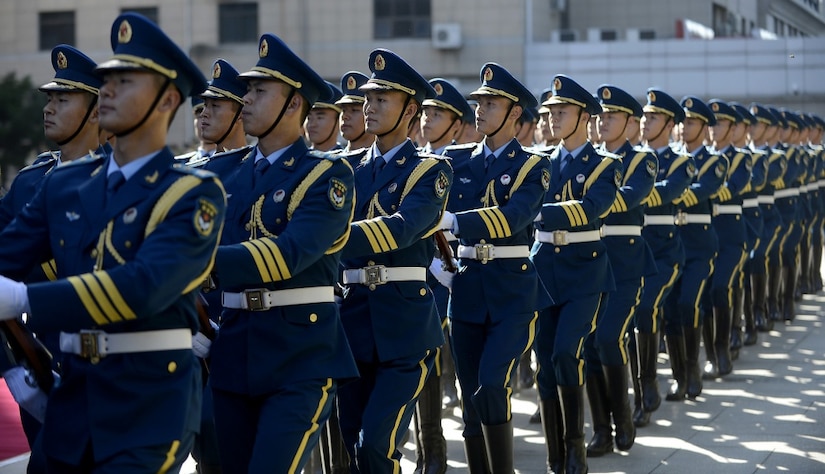March 25, 2021 | , DOD News
"We're not entering a new Cold War," said Michael Brown in a virtual, keynote address to NDIA's National Security Artificial Intelligence Conference and Exhibition.
What he thinks is different from the former Cold War starts with China's economic scale. China clearly has the potential to overtake the U.S. in terms of economic scale because its population is four times as large, Brown said.

The other key difference is China is well-integrated into the global economic system, he said.
"That's part of the reason they've risen so dramatically economically, and they're using global institutions. They want to be well-integrated and, in fact, setting [up] how those institutions operate. China [also] wants to have very successful integration of commercial technology into their military," he said.
China has quite an impressive set of technologies where they're already leading, Brown said.
"If you look at where they're challenging us [in] AI [artificial intelligence], they are a lot closer than we would like, and we need to continue to invest to make sure that we maintain a lead. I would say AI is just one of the areas where we need to continue to invest to make sure that we — with our allies — have a lead," he said.
The DIU director emphasized that China has more genetic data on U.S. citizens than the United States. They've also made it a point to figure out what they can do with mining that data and combining that with other information they've stolen — like health records, or our security clearance information — which has dramatic implications, both offensively and defensively, he added.

Brown said one of the things the U.S. needs to do in response is think about long-term investments in technologies "[and] not to pick winners and losers to make sure we're setting the table so we have a very robust set of commercial suppliers who can be challenging these Chinese global champions," he explained.
If the U.S. is thinking out beyond the next 20, 30 or 40 years as China is, such an investment will have untold spillover effects, Brown said. This is where the internet, global positioning systems, miniaturized electronics and other key innovations have come from that lead to tremendous economic prosperity, which, in turn, guarantees U.S. national security, he added.
Brown said he thinks of the technological race with China as a superpower marathon, and there are four steps the U.S. should take that will put it on the best footing for this race:
- Bolster investment in basic research and development that's both on the federal level and on the private sector side. "I think one of the advantages of federally funded R&D [research and development] is you get a very long-term time horizon and some willingness to take risks," he said.
- Invest in its talent. "We did this to create more engineers in the 1960s, and we need to similarly have an effort again, to make sure we're creating the right STEM talent," he said.
- Ensure all U.S. departments and agencies work together. "I think this gives us an organizing principle in terms of making sure we're leading in the tech race," he said, noting that China is the sense of urgency that should motivate us.
- Focus with the shareholder revolution in this country. "Basically, since the 1980s, we've been increasingly focused on efficiency of capital, [such as] what are the short-term measures in a world where you don't have great peer competitors. But in a world where you have challenges from strategic adversaries, you probably don't want the supply chain running through those areas. It would behoove us to make sure our capital markets are focused long enough term so we can make investments in strategic capabilities, in addition to reflecting efficiency of capital," he concluded.








No comments:
Post a Comment